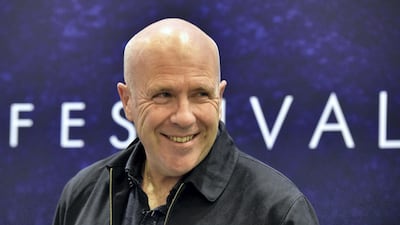Back in 1991, Richard Flanagan was trying to write his first novel. He was working as a labourer in Tasmania, but times were hard, and he and his wife – who was pregnant with twins – were struggling to make ends meet. One night, out of the blue, he got a phone call. It was John Friedrich, then Australia's most notorious corporate conman, about to stand trial in the $296m National Safety Council of Australia fraud case.
Friedrich made Flanagan a proposition impossible to refuse: he offered him $10,000 to ghostwrite his memoirs. The only snag: they had to be finished before he went to trial in six weeks' time. Flanagan agreed, and immediately flew to Melbourne to begin work with Friedrich. Three weeks later, and with the book nowhere near complete, Friedrich committed suicide. The project, however, couldn't be abandoned. Flanagan still had to deliver a manuscript - not least because demand for the so-called "real story" behind the lies and subterfuge went through the roof. "Most writers' first novels are criticised as autobiography," Flanagan told Guardian Australia in a recent interview. "My first autobiography, though, quickly degenerated into a novel."
The events of this strange six-week period have haunted Flanagan ever since. Codename Iago: The Story of John Friedrich was not a success. Yet Flanagan's own career blossomed. He published his first novel three years later, and like those that followed, it met with critical acclaim, culminating with his most recent novel, The Narrow Road to the Deep North, winning the Man Booker Prize in 2014. This would be regarded by many as the pinnacle of any novelist's body of work, thus it's somehow fitting that Flanagan decided to follow it with a book that takes us back to the very beginning of his career, and his time with Friedrich. Unfortunately, First Person fails to quite deliver the "chilling" psychological thriller-cum-meditative portrait of writing it promises.
Initially it reads like memoir. Kif Kehlmann, the novel’s narrator, is more Flanagan’s doppelganger than alter ego. It’s the early ’90s, he’s 31 years old, desperately trying to finish a first novel, his wife is heavily pregnant with twins, and they’re living in penury. Then comes the unexpected phone call: the offer of ten grand to pen the memoirs of one Ziggy Heidl, an infamous conman about to be brought to trial who’s rumoured to have dabbled in drug-running and contract killings, and to have been in bed with the CIA.
Kehlmann’s task is a monumental one – not only is he up against the clock, but Heidl is maddening to work with, “transfixed by the romance of his own destiny”, but continually evasive and obstructive: “He always seemed able to evoke a mystery, but the moment you sought to penetrate the mystery, he sought to escape what it was he had just suggested.” Heidl has fallen so far down a rabbit hole of lies he’s unable to distinguish between fact and fiction. “Don’t you see?” he says to Kehlmann in a moment of pure horror, “I made it up. Every day, just like you. Like a writer.”
The ghostwriter finds himself drawn into Heidl’s orbit, a world that hums with danger and the promise of violence, filling in the gaps in his subject’s life, but losing part of himself in the process.
The problem is that we don’t so much see this happening as merely have Kehlmann telling us it did: “The more I invented Heidl on the page, the more the page became Heidl and the more Heidl me - and me the page and the book me and me Heidl. For the first time in my life I sensed the terrifying unity I had always craved as a writer but had never known. Everything was growing ever more ambiguous - his life, the book, my sense of who I was and what I was doing.” As is the risk with any slippery character, Heidl never really comes alive on the page, but then again, neither does Kehlmann. We know we should feel sympathy for his plight – “I was broke, isolated and self-isolating, with a family I couldn’t support and a dream I couldn’t realise” – but nothing ever quite feels solid enough. The only part of the novel that really seems to take root is the birth of the twins, an astonishingly elemental, visceral piece of writing that cuts through the haziness of the rest.
I’m all for books that blur the boundaries between genres, and it’s also easy to see why Flanagan wanted to write about what was clearly an extraordinary experience, but something has been lost in the fictionalisation. Rather than rendering it sharper and more meaningful, instead he loses focus. In the same way that Kehlmann finds the uncertainty of the book he writes distressing, First Person shape shifts in an uneasy, unsatisfying way. I can’t help but wish Flanagan had just written a more straightforward memoir instead.
_______________
Read more:
Reading into religion with Alexis York Lumbard’s Islamic children’s books
_______________

